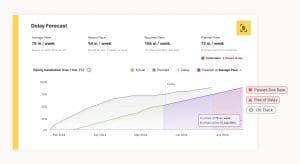Buildots has unveiled an AI-powered tool that predicts construction delays and recommends mitigating action before potential disruptions escalate
The Delay Forecast feature also analyses the root causes of construction delays, enabling project managers to improve performance and strategy.
Using AI, it flags activities that are at risk of falling behind schedule and projects forecast delays.
It also recommendations pace corrections to mitigate and avoid disruption.
When users get delay alerts, they can model new pace assumptions and see how they would affect their timeline, allowing them to optimise and fine tune strategies.
The dashboard also allows project teams to track the risk of construction delays week by week, showing the impact of decisions.

62% of construction activities regularly behind schedule
Buildots developed the feature after its research found that 62% of construction site activities run slower than planned.
A quarter of activities run at half their planned pace.
However, even when activities perform poorly week after week, issues often go unnoticed until they result in significant construction delays.
Construction delays reduced by half
Global beta testing of Delay Forecast has shown a 50% reduction in delays when used together with Buildots’ Performance Driven Construction Management (PDCM) method.
One of the sites that took part is a large-scale Danish government complex being built by Scandinavian contractor NCC Denmark.
Project manager Niels Frank Jensen said: “Using Delay Forecast, not only can we now identify risks very early but also inform our trades of the exact pace required to meet the schedule.
“Trades can adjust manpower resources accordingly by viewing quantities of work.
“We’re finally able to back our instincts and prioritise activities based on actual performance and what’s really at risk.”
Aviv Leibovici, Buildots co-founder and CPO, said: “At Buildots, we believe that accurate progress data, performance indicators and data-driven insights are critical to solving issues that plague almost all construction projects, such as delays and inefficiency.
“Those core beliefs inspire all that we do, from developing the Performance Driven Construction Management (PDCM) method to designing new tools like Delay Forecast.”

